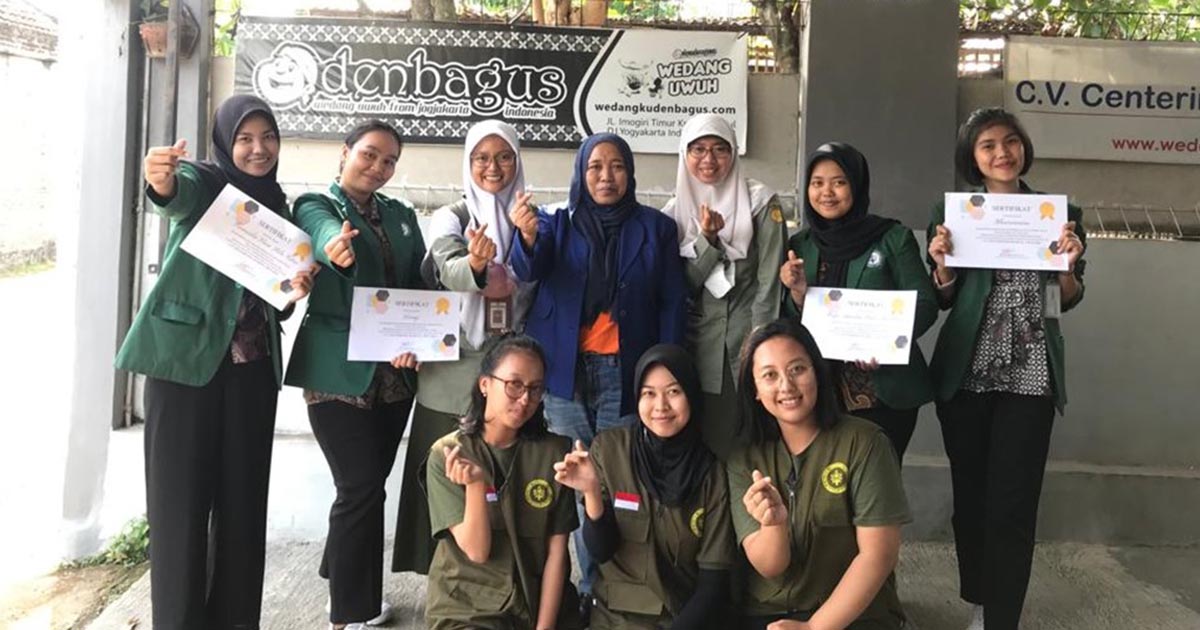
Centerindo’s herbal drinks are derived from the Jamu Wellness Culture, a Unesco Intangible Cultural Heritage
Once dismissed as superstitious and outdated, traditional medicine is currently enjoying serious attention from the scientific world. As the World Health Organization points out, many conventional medicines – from cancer treatments to contraceptives – are derived from traditional cures. It is also big business: traditional medicine brought in an estimated USD 175 billion in 2023, and the global market is predicted to almost double in the next ten years.
One person excited by the traditional medicine boom is Dwi Karti Handayani. Dwi is a proponent of jamu, a traditional medical practice deeply rooted in Indonesian culture. Although more scientific research is needed to understand the medical effects of jamu, many Indonesians believe its herbal medicines have health benefits, such as increasing stamina and immunity, as well as relieving symptoms like pain, inflammation and nausea.
In 2015, Dwi established her business, CV Centerindo Kurnia Tritama, in Yogyakarta, a city and major cultural center on the island of Java. Centerindo specializes in the production of jamu botanical drinks, such as the Yogyakarta specialty of wedang uwuh, and infused tea – all using local spices, herbs and botanicals as raw ingredients.
Through Centerindo, Dwi is not only helping to maintain the culture of jamu, but providing work opportunities for local women and youth by employing them to prepare and package the products. Today, Centerindo’s 20 employees produce up to 30,000 products each month.
The power of brands
These products have been introduced to the market under four brands: “Denayu”, “Denbagus”, “Wedangku” and “Jahe Anget Wangi (JAW@)”. Each brand represents different types of products and uses different sales channels. Dwi recognizes the power of branding to create customer loyalty, drive repeat sales and boost business. She also knew that registering brands as trademarks helps protect a company’s intellectual property (IP). She therefore submitted trademark registrations for all four brands to Indonesia’s Directorate General of Intellectual Property (DGIP), believing this would secure Centerindo’s IP for years to come.
Her interest in IP led Dwi to discover, via Bank Indonesia, WIPO’s Intellectual Property Management Clinic (IPMC) organized jointly by the WIPO Singapore Office, WIPO’s IP for Business Division, DGIP, Bank Indonesia and the ASEAN Business Advisory Council. The IPMC is a four-month program supporting innovative small- and medium-sized enterprises to develop IP strategies that best showcase their business plans and portfolios of intangible assets. The selected companies are shown how to better manage and use their IP through personalized, one-on-one mentorship, expert advice and training. “I decided to apply because I hoped to learn something new about brands and IP rights,” explains Dwi.
While attending the IPMC, however, Dwi discovered that none of Centerindo’s four brands were registered as trademarks under the company’s name. IP experts at the IPMC found that the “Denayu” and “Denbagus” brands were registered under Dwi’s name instead of her company’s.
The “Jahe Anget Wangi” brand – which translates as “fragrant warm ginger” – was also filed for registration under her name but had been rejected by DGIP because it directly describes the product; if granted, it would have prevented other traders from using the words “fragrant”, “warm” or “ginger” to describe their products.
The “Wedangku” brand, meanwhile, was not owned by either Dwi or Centerindo but a business partner. This business relationship was established solely based on trust, without an underlying written agreement.
After discussing her company’s IP portfolio with IPMC, Dwi recognized that these challenges were preventing Centerindo from effectively managing its IP portfolio. Experts at the IPMC helped her better understand trademark ownership, emphasizing that registering a trademark or other forms of IP protection under a company’s name would significantly improve the company’s value compared to registering them under individuals associated with the company. “I learned a lot about brand ownership and about the strategies for implementing and using brands,” recalls Dwi.
Dwi also now recognizes that maintaining and growing her business requires more than just trust, even between business partners. IPMC experts stressed that every IP-related aspect of any potential cooperation with third parties should be cleared in the first instance and then properly documented.
IPMC experts also provided Centerindo with practical tips to create a clear business identity with a distinctive brand that can be registered as a trademark. “Since attending the IPMC, I have changed my brand strategy and improved several business agreements with the company’s partners,” comments Dwi. “I have also re-registered our brands in the name of the company and those brands whose registration was previously rejected.”
Thanks to her time at the IPMC, Dwi is equipped with a clearer understanding of trademark and IP protection and a stronger business plan. Better able to manage its IP assets, Centerindo is now preparing to work with investors to facilitate its entry into the international market. A future of healthy growth beckons for this traditional medicine company.
August 9, 2024
December 10, 2024
December 9, 2024
December 9, 2024
December 4, 2024
